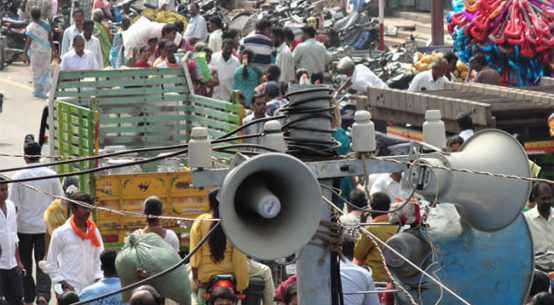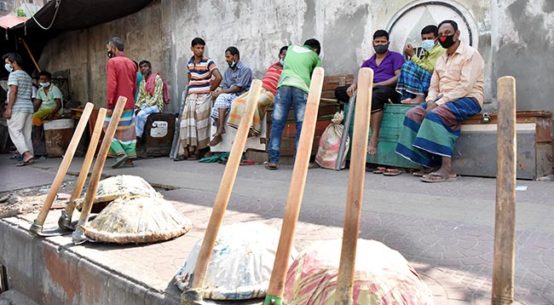
Bangladesh began the vaccination programme against Covid-19 in February last but activities got interrupted for some time due to depletion in the vaccine stock. Vaccination activities are going to resume in full swing as vaccines have come from different sources. As per the government plan, citizens over 40 years of age and of 20 classes and professions are being brought under the vaccination programme. But the worrying fact is that people under the age of 40, who come in contact with more people (super spreaders), are being left out of the programme. As a result, mass immunisation activities have not been very successful in preventing the spread of the disease. In this context, public health experts are advising the authorities concerned to bring the super spreaders under the mass vaccination programme.
Although the Covid situation had come under control for some time, it is increasing again in the country. Infection has been on the rise, especially since the Indian delta variant was identified. The health system is disrupted across the country due to growing cases of infection. There is no place for patients in the hospitals. The situation has worsened with a shortage in oxygen and medical equipment. Against this backdrop, strict lockdown has been imposed to prevent the virus spread. Immunisation is going on as well. But vaccination is still limited to a few privileged sections of society. The underprivileged are left out of the programme. People like shop workers, auto-rickshaw drivers, rickshaw pullers, bus drivers and helpers come in contact with a large number of people every day. The infection spreads rapidly through them. These super spreaders are playing a big role in increasing the infections. If they are not vaccinated, it will be difficult to control the crisis. So, vaccinating the super spreader community is now one of our biggest public health challenges.
Vaccination is now underway in many countries around the world to deal with the epidemic. All countries, especially the developed and rich ones, are trying to get more people vaccinated as soon as possible. For this reason, many countries have made arrangements for mass immunisation through the walk-in system as well as hospital or clinic based immunisation through online registration. In order to increase vaccination coverage in England, for example, people are being vaccinated in the walk-in system at football stadiums, theatres, supermarkets, car parking sites, shopping centres, community centres, school premises, etc. Anyone over 18 years of age can get vaccinated at these places. But, no advance registration is required for them. As a result, vaccine coverage is increasing rapidly in the country as well as other rich countries where the coronavirus has largely come under control. This system has even been introduced in India. Now, infections in India keep declining. Therefore, the experience of these countries can be instructive for Bangladesh too.
The government has a strong network and staff up to the village level for immunisation activities in the country. Bangladesh has also received international recognition for its successful conduct of vaccination activities. The country is also expected to be a model for others in the field of Covid vaccination. However, the reality is that the registration process for vaccination is quite complicated here. One needs to register by visiting the “Surokkha” website or downloading the “Surokkha” app on one’s smartphone. It is not easy if one does not have the facility of technologically advanced devices or does not know the required skills. This procedural complexity is also a key reason for the disinterest in vaccination among the underprivileged population. Public health experts are of the views that the registration process be simplified, for example introducing vaccination activities in the walk-in system. Now is the time to take effective action in this regard.
In this case, non-government organisations (NGOs) can be involved. NGOs have a large workforce and they should be used in school premises, bus stands, railway stations, shopping malls, community centres, stadiums and other places to make arrangements for vaccination in the walk-in system. Infection cannot be brought under control unless super spreaders are vaccinated.


